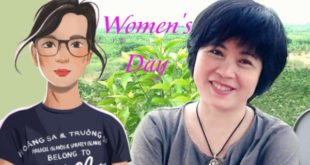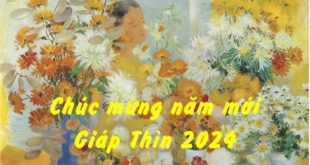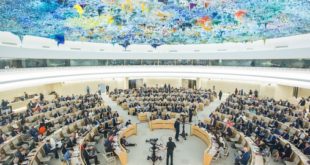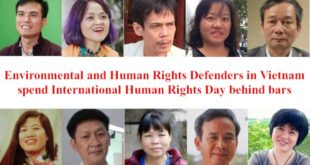PARIS, 8 June 2019 (VCHR) – Mr. Võ Trần Nhật, Executive Secretary of the Vietnam Committee on Human Rights (VCHR) described the alarming situation of freedom of religion or belief (FoRB) in Vietnam at the Taiwan International Religious Freedom Forum (TIRFF) held in the city of Hsinchu, near Taipei, from 29th May – 1st June 2019.
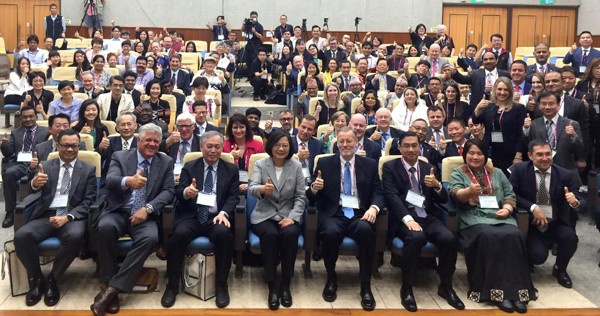
The Forum brought together religious and political leaders, members of parliament, religious freedom experts and civil society activists from 26 countries of Asia, Europe and the USA to debate the theme of “Rising to the Challenge” of growing religious persecution, particularly in Asia. Taiwanese President Tsai Ing-wen and Vice-President Chen Chien-jen joined the gatheringtoexpress Taiwan’s commitment to the global effort for religious freedom, as well as Dr. Pusin Tali, Taiwan’s newly-appointed Ambassador-at-large for Religious Freedom, who is the very first Asian Ambassador at Large for FoRB.
In his presentation, Võ Trần Nhật alerted participants to the serious violations of freedom of religion and belief in Vietnam, notably the fierce and consistent persecution of the outlawed Unified Buddhist Church of Vietnam (UBCV) and the tragic situation of UBCV Patriarch Thích Quảng Độ, who has spent over 36 years in prison, internal exile, under house arrest and strict Police surveillance for his nonviolent engagement for religious freedom, human rights and democracy. Mr. Nhật called on the Vietnamese government to immediately lift all restrictions imposed upon Thích Quảng Độ, and publicly guarantee his fundamental freedoms and rights.
Calling for the immediate release of all political and religious prisoners, he pressed Vietnam to take urgent action on behalf of Buddhist environmental activists Phan Văn Thu (71) and Đòan Đình Nam (67) who are in very poor health as a result of harsh detention conditions and lack of medical care. Pham Văn Thu and Đòan Đình Nam are serving life imprisonment and 16 years in prison respectively following an unfair trial on 4 February 2013, in which 22 members of their group received a total of 295 years in prison and 105 years house arrest on charges of “activities aimed at overthrowing the people’s administration”. Known as the “Bia Son Council for Public Law and Affairs” (Hội đồng công luật công án Bia sơn) the group ran an eco-tourist company in Phú Yên which believed in the harmonization of nature and humankind. The official press reported that the group “chose the method of nonviolence” to “try to win the confidence of the masses against the leadership of the Party and State”.
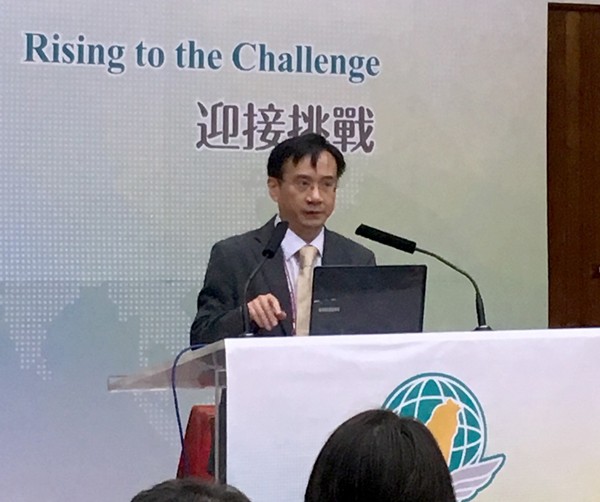
On Vietnam’s religious policies, Võ Trần Nhật said that “the government and the Communist Party use religions as a tool”. He cited the lavish celebrations of UN Vesak Day (Birth of Buddha) in Vietnam in May this year as a perfect example of the government’s double language, where on the one hand they extol State-sponsored Buddhism and on the other they unscrupulously repress the independent UBCV. “It is ironic that the region of Ba Sao [where the Vesak was held] is home to “the world’s largest pagoda”, but also to a notorious prison camp where many religious and political prisoners are detained” he said.
He also recalled that this year’s Vesak was marred by a controversy that triggered deep protests within the Buddhist community and beyond. Thích Thanh Quyết, deputy head of the State-sponsored Vietnam Buddhist Sangha unveiled a huge painting depicting Buddha and Ho Chi Minh side by side, and declared that both were “saviours” of the Vietnamese nation. Vietnamese social media strongly criticized the incident, which they said showed the regime’s overt politicization of religion.
The Law on Belief and Religion, which came into force in January 2018, tightens state control over religious communities, said Võ Trần Nhật. The law provides legal identity only for registered religious bodies that are recognized by the state, leaving non-registered groups such as the UBCV in a legal limbo, exposed to harassments and arbitrary repression. He stressed that registration should be optional, not mandatory, and that the universal right to freedom of religion or belief should never be conditioned on administrative procedures.
In conclusion, the TIRFF adopted two Declarations, one on the religious freedom of the Uyghurs (Declaration on the Persecution of the Uyghurs) and the other on the traffic of human organs by the Chinese Communist Party (“#NoMore” Organ Harvesting Declaration), and launched an assistance fund for victims of religious persecution. The Forum took place against a backdrop of growing international concern for freedom of religion or belief worldwide. On the eve of the TIRFF, the UN General Assembly adopted a resolution establishing 22th August as the “International Day Commemorating the Victims of Acts of Violence Based on Religion or Belief”.
This post is also available in: French Vietnamese
 Quê Me Quê Me: Action for democracy in Vietnam & Vietnam Committee on Human Rights
Quê Me Quê Me: Action for democracy in Vietnam & Vietnam Committee on Human Rights

